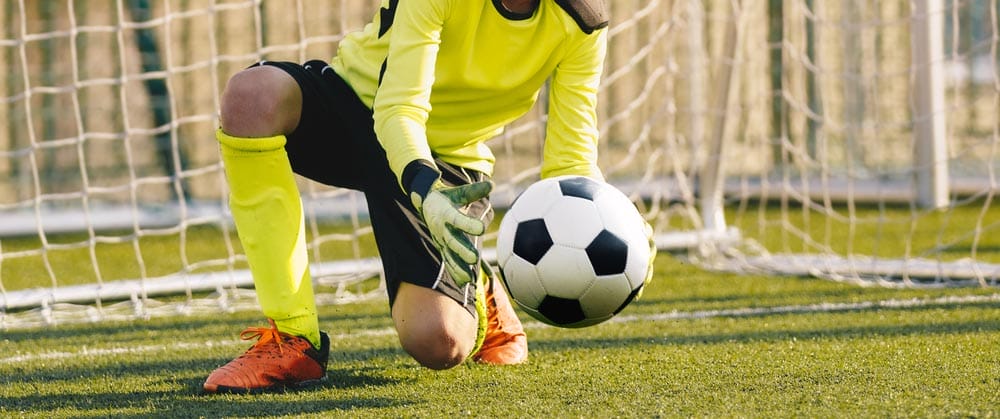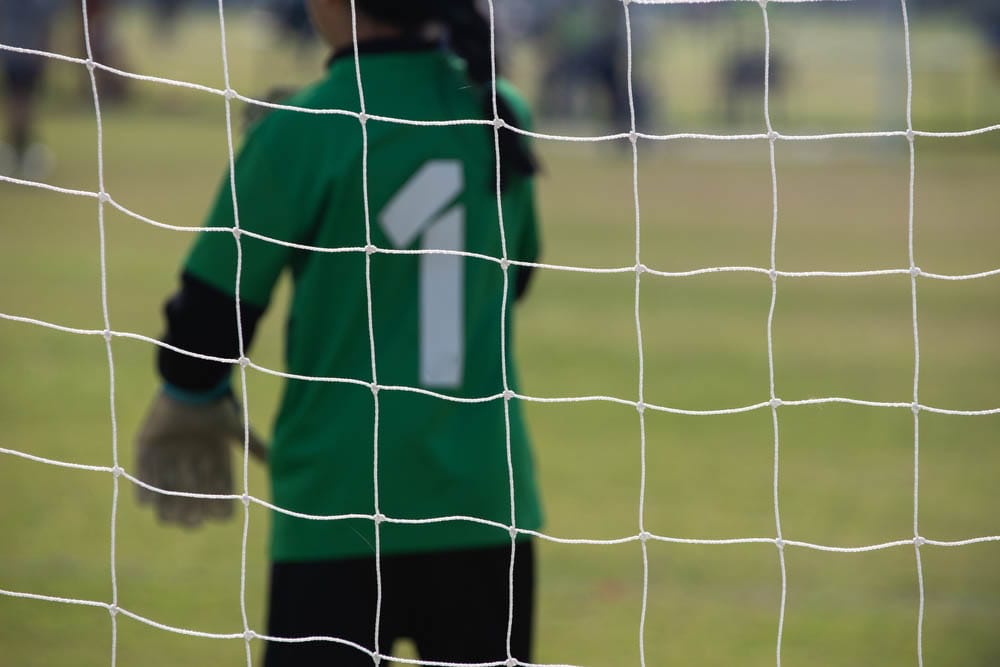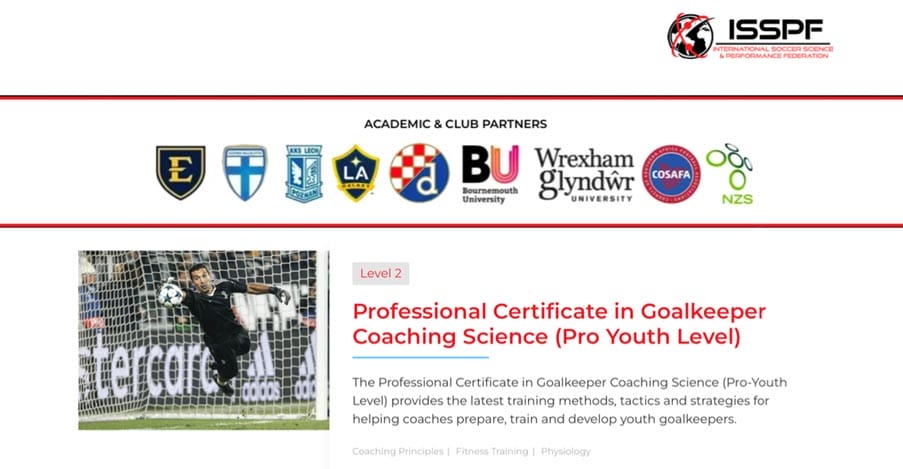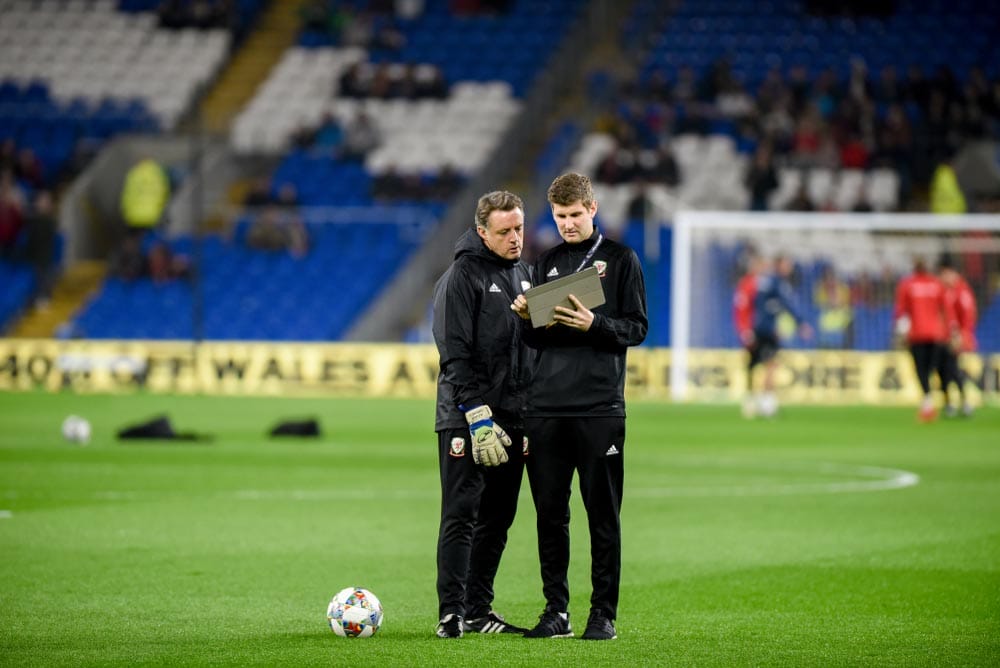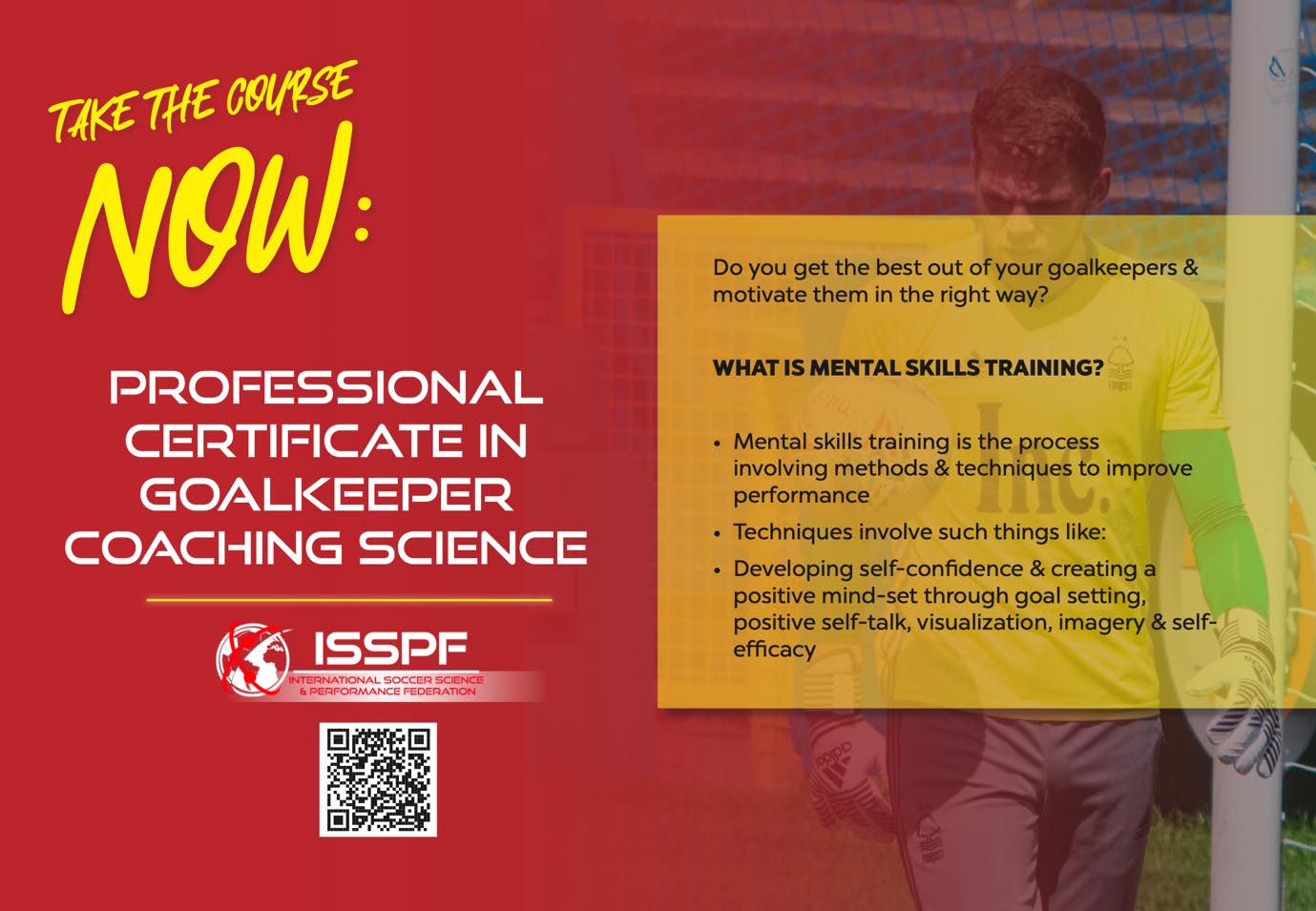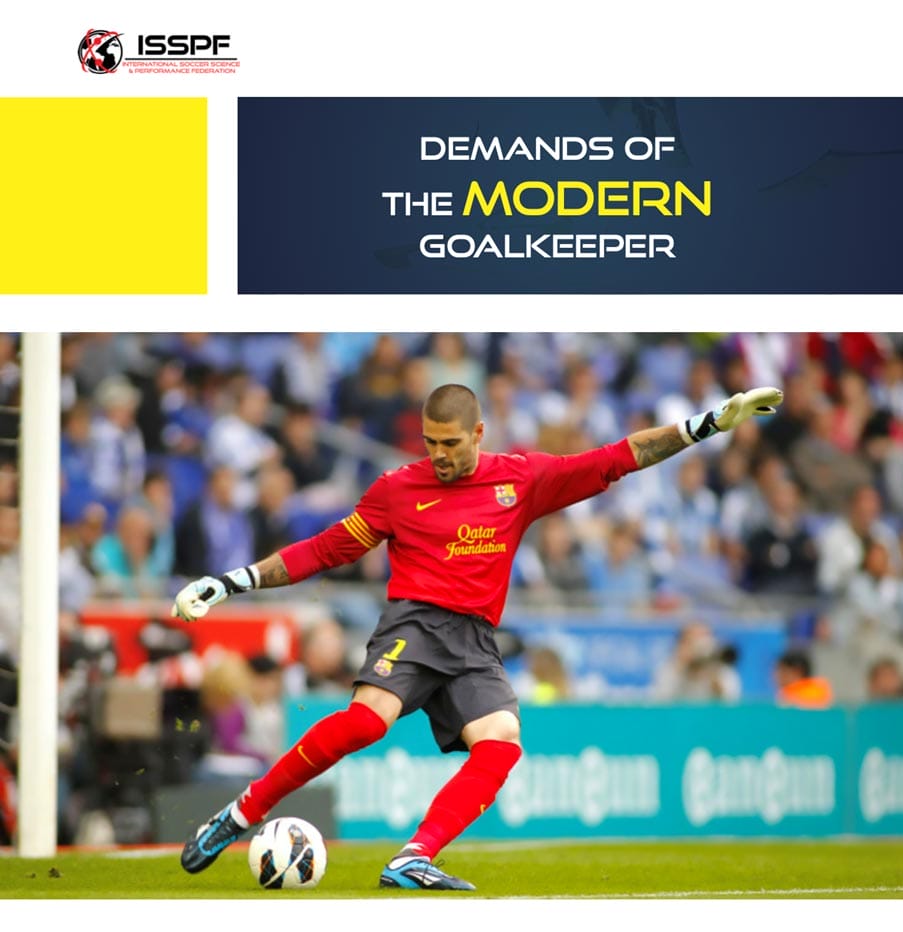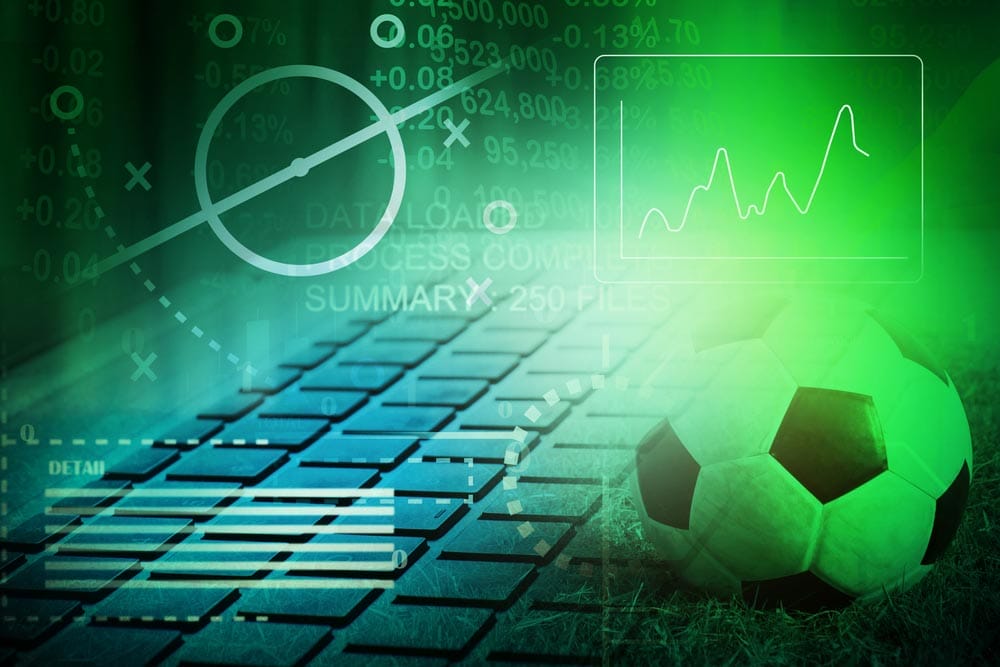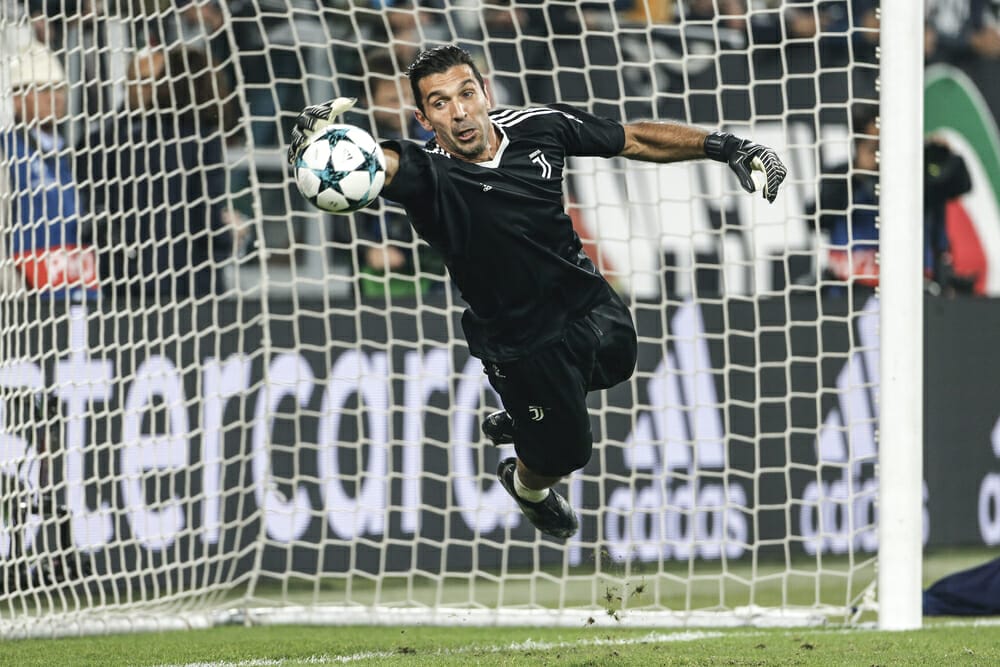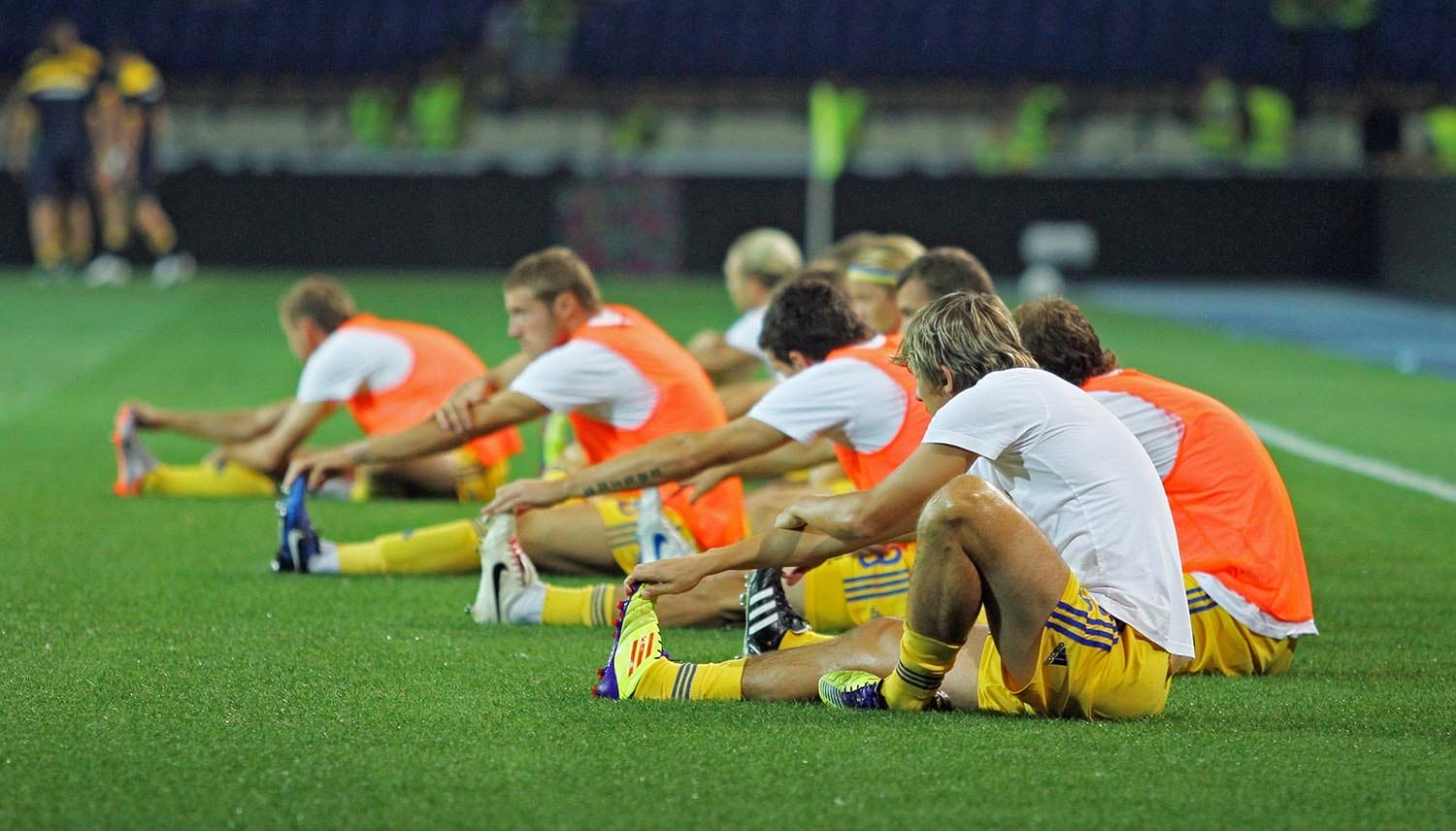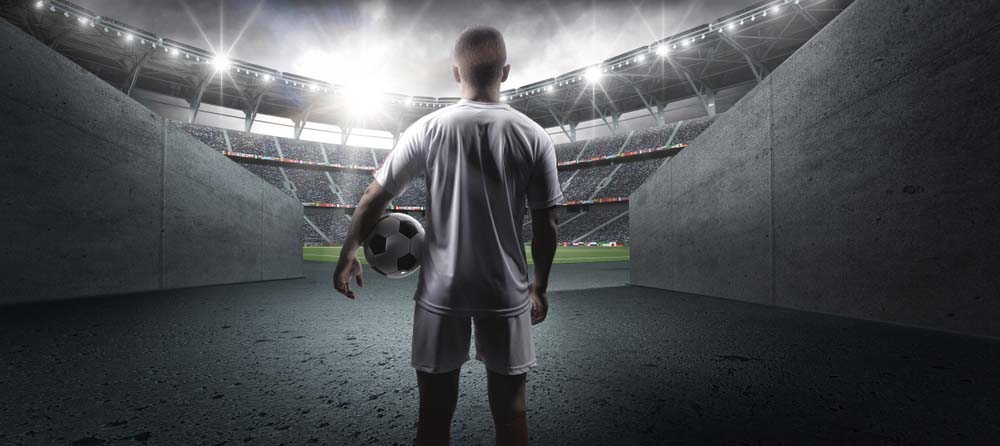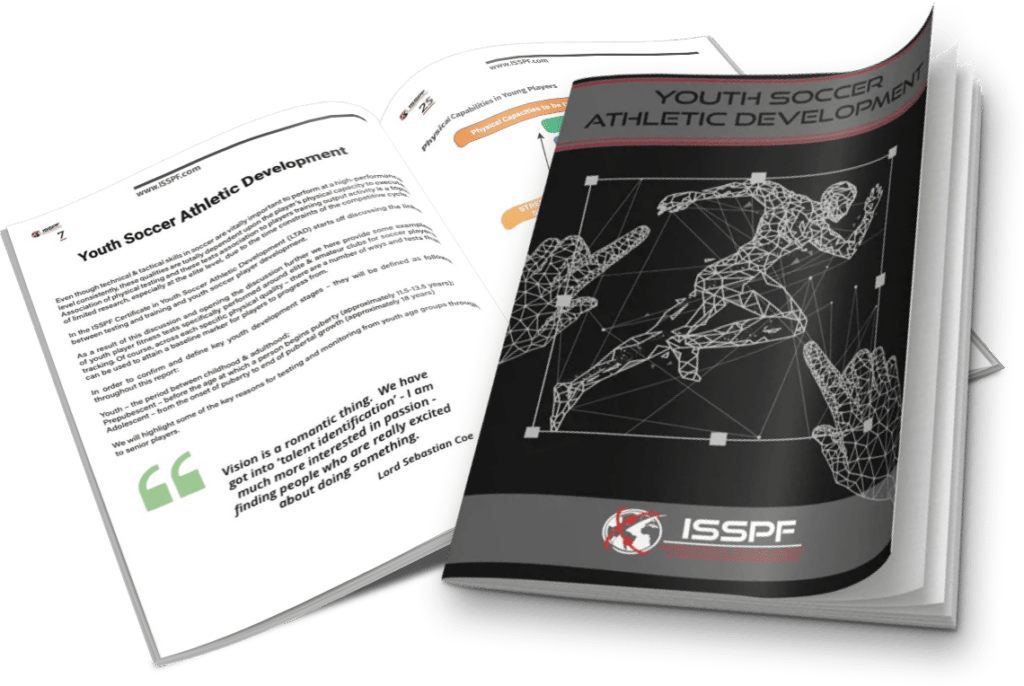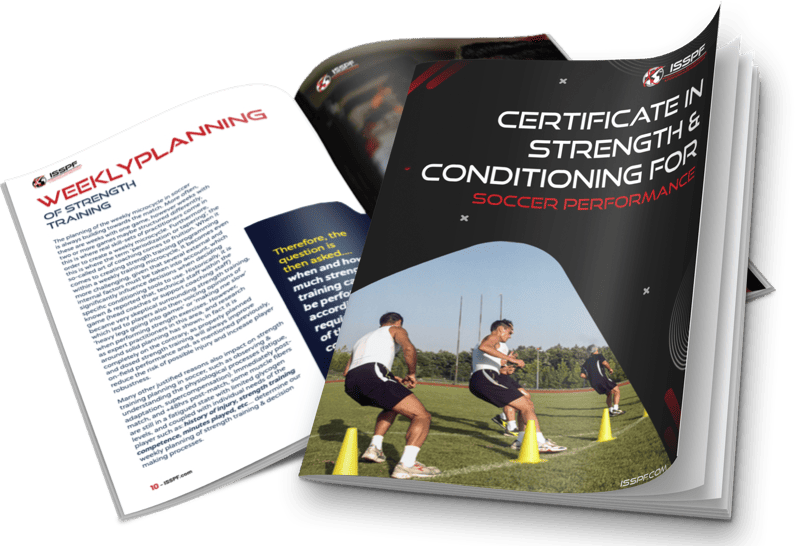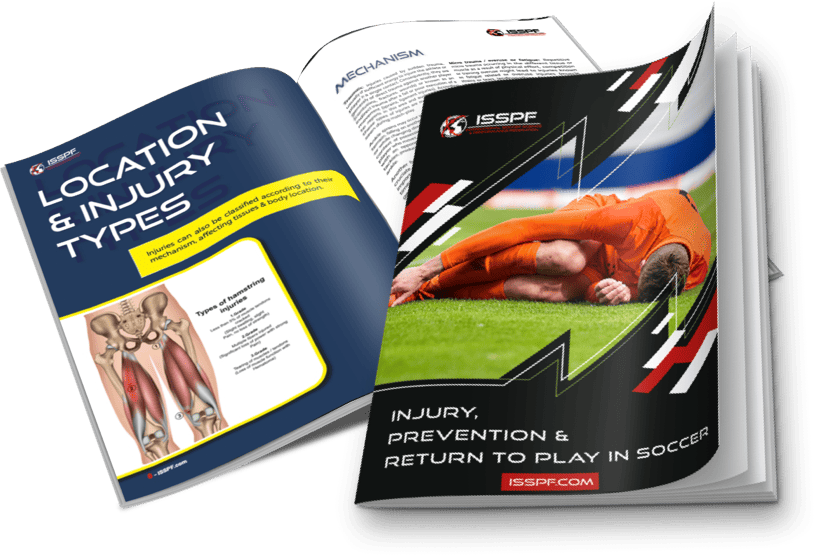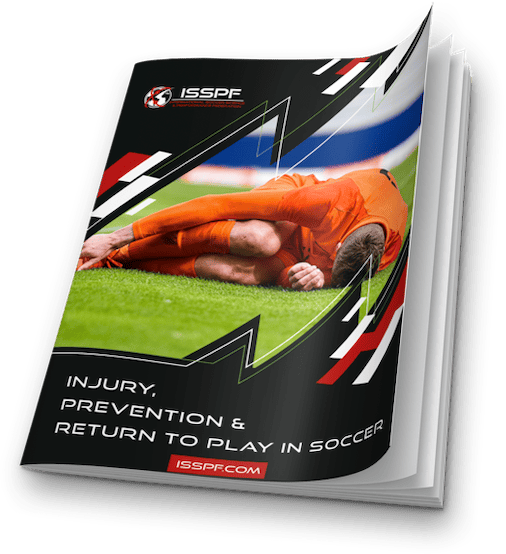The Evolution of Youth Goalkeeper Coaching: Progressing with the Game in Coaching Goalkeepers
Written By: Daniel Tumelty-Bevan (Head of Academy Goalkeeping)
In the world of soccer, goalkeepers hold a distinct and vital role within their teams. Long gone are the days when they were merely expected to stand between the posts and make saves. The art of goalkeeping has evolved into a highly specialized position, demanding unique skills and attributes.
To cater to this evolution, the development of youth goalkeeper coaching has undergone significant transformations. Modern coaching techniques now emphasize the holistic growth of young potential goalkeepers, ensuring they receive comprehensive guidance to become the guardians of the net.
The Development of the Position Out of Possession
The role of a youth goalkeeper coach is a multifaceted one that requires a diverse set of skills to shape individuals into competent and confident guardians of the net. Central to their responsibilities is the need for a profound understanding of the intricacies of the position’s demands and expectations.
Adept in defending the goal, they must be capable of understanding and influencing goalkeepers to see, understand and use information to inform their position, decision and action when defending the goal. Key information to these processes include attackers’ position, body orientation, first touch and distance to goal.
All of these small details allow for the goalkeeper to analyse situations, likely outcomes and prioritise which holds the most danger and how to best guard against this; leaving the goal to affect the ball or recovering to the goal to execute shot stopping actions.
In addition to these positions and decisions comes the aforementioned defending the goal ‘actions’, commonly labelled as ‘techniques’ or ‘saves’. These actions, still hold huge value and often make the difference between success and failure when in the goal.
However, with these actions comes a plethora of opinions on the best ‘technique’ to use, each often differing by coaches’ experience in what worked for them or for a goalkeeper they have seen. This in turn, can create a belief in a one size fits all model, creating goalkeepers attempting to make the same save, in the same situation, in the same way, but hold different areas of strength to maximise.
The key question that arises from the development of the position then becomes, how do we maximise and allow for each individual goalkeeper’s strengths when we ask them to all look and perform the same?
A further development in the goalkeeping position comes an increased demand and knowledge around Defending the Space or the commonly labelled role of the ‘sweeper keeper’.
This phrase often misunderstood and over simplified, calls for the goalkeeper to further understand the trade-offs between their starting position to Defend the Goal or to Defend the Space, the intricacies of which again hold high detail.
Again, understanding the effects of the attackers’ position, body orientation, first touch and distance to goal, alongside their teammates’ position and space behind create a calculated risk within the position taken up and the decisions made by the goalkeeper.
- Is there enough pressure on the ball to stop a shot?
- How much of a threat is there to the goal from the position of the ball?
- Can I affect the next pass? Does the next pass create a problem?
All of these questions allow for the goalkeeper to take calculated risks, preventing or limiting high value scoring opportunities through their position, decision and action.
Online Goalkeeper Coaching Course
The Development of Goalkeeper Coaching
With the above-mentioned developments in demands and expectations for goalkeepers within the game, the question becomes ‘how do the coaching sessions evolve and progress to allow this?’ To explain further, goalkeeper coaching has been inherently technical, or action based; focusing on set positions, shot stopping and high ball actions with high demand and detail placed on making specific saves from specific shots or ‘services’.
This coaching holds great value on the final part of the sequence mentioned, with all detail being placed on the action and how it looks, often removing realism or pictures from the game to put in place manufactured movements or ‘services’ to allow goalkeepers to practice specific saves.
However, in the interests of finding and progressing ways to develop goalkeepers, more thought can be placed into what these sessions may be missing. For example, adjustment of position based on the movement of the ball from one place to another, or the decision to change position based on the attacker’s first touch before the need for a goalkeeping action occurs.
These small moments occurring before the strike at goal, hold high detail, not only in position and decisions, but also in the goalkeeping actions that have been so consistently worked on in isolation. By adding the relevant moments building up to the action, coaches can allow for goalkeepers to pick up anticipatory cues allowing them to more accurately predict and to make the next action (Wang et al., 2019).
To use a specific example, a big lateral touch for an attacker may well increase the likelihood of them attempting to score in the near half of the goal due to position of the ball and their body orientation making an effective strike across goal far less likely.
The current challenge to this thought process can be that the randomness and quality of the game can never fully be recreated in goalkeeping specific practice due to the participant numbers and participant quality needed within the practice.
However, it can also be argued that team-based game practices lack the control and opportunity for similar pictures to be created, which in turn limits the amount of feedback and learning opportunity. Being able to create and recreate pictures with similar cues can increase anticipatory ability, which in turn may lead to increased ability to make effective save actions (Müller et al., 2017).
It is within the execution of these save actions where the biggest debate lies, some theorising that repetition of the same action creates muscle memory, allowing these actions to become second nature. A constant invariable demand, met with a constant, invariable action creates consistency in success and therefore more effective, expert goalkeepers.
However, this theory is challenged in studies (Otte et al., 2020), identifying the need for contextual interference and differentiation in practice to allow for expert understanding and execution in goalkeeping.
The Best of Both Worlds

However, interest in research to develop and progress goalkeeper coaching is increasing through researchers such as Otte and White, exploring theories relating to cognitive processing and skill acquisition.
Currently, the narrative seems to be that these two theories within goalkeeping development are averse to one another, with allegiance being demanded to one method or the other.
However, finding the balance between the two theories and practices may well define the next generation of goalkeepers, effective in cognitive processing and anticipatory cues, whilst holding expert consistency in effective goalkeeping actions.
References (click + to expand)
Wang, Y., Ji, Q. and Zhou, C. (2019) ‘Effect of prior cues on action anticipation in soccer goalkeepers’, Psychology of Sport and Exercise, 43, pp. 137–143. doi:10.1016/j.psychsport.2019.02.001.
Müller, S. et al. (2017) ‘Individual differences in short-term anticipation training for high-speed interceptive skill’, Journal of Motor Learning and Development, 5(1), pp. 160–176. doi:10.1123/jmld.2016-0029.
Otte, F.W., Millar, S.K. and Klatt, S., 2020. How does the modern football goalkeeper train?–An exploration of expert goalkeeper coaches’ skill training approaches. Journal of sports sciences, 38(11-12), pp.1465-1473.
Online Goalkeeper Coaching Course
Professional Certificate in Goalkeeper Coaching Science (Pro-Youth Level)
Who is this course for?
- The Professional Certificate in Goalkeeper Coaching Science (Pro-Youth Level) provides the latest training methods, tactics and strategies for helping coaches prepare, train and develop youth goalkeepers
- The Professional Certificate in Goalkeeper Coaching Science online course gives you the specific training principles, tactics and techniques that are applied at elite academies
- You will develop a strong understanding of the role of the goalkeeper coach, and you will develop your knowledge of conditioning, nutrition, psychology & physiology of the young developing goalkeeper
This course is suitable for:
- Individuals tasked with the responsibility for the coaching, training, & preparation aspects of youth players and goalkeepers.
- Sports coaches or football practitioners keen to understand more about sport science, developing a training methodology & athletic development training in team sports and goalkeeping
- Individuals with an interest in training and coaching, especially goalkeeper coaches and performance practitioners
Is this course suitable for me?
- This course is developed and structured for all individuals with an interest in developing their knowledge around the key performance area of goalkeeping, physical training and sporting methodology approaches to team sports
- Individuals with degree level or post-degree level educations, learners with UEFA, CONCACAF, CONMEBOL, AFC or other FIFA recognised coaching awards in the training & development of individual soccer players, goalkeepers or team sports.
- If you are an individual tasked with the responsibility for the coaching or coaching education development aspect of both individual athletes or team sports.
- This is for you if you are an individual with an interest in developing your knowledge in the training periodisation, and coaching methodology, goalkeeping coaching science or individual athletes or team sport players.
Why is this course important?
- The Professional Certificate in Goalkeeper Coaching Science (Pro-Youth Level) provides the latest training methods, tactics and strategies for helping coaches prepare, train and develop goalkeepers.
- Understanding the key components of what drives coaches, players, & athletes to succeed is of paramount importance.
- Provides most efficient training methods and detailed insights into developing goalkeeper fitness alongside tactical strategies & developing a training methodology.
- Gain a better understanding how to maximise goalkeeper development & preparation of players in a more efficient & contemporary game model approach.
- Learn how to balance key training elements from a technical, tactical & physical preparation in order to attain peak performance for goalkeepers.
- Practitioners & coaches can only benefit themselves & their players further by a more in-depth knowledge of physical training & soccer methodology.
What skills will I improve if I take this course?
- This course discusses the most efficient goalkeeper coaching methods and performance, goalkeeper coaching science principles and detailed insights into how to program them within a team sport environment.
- Provides you with an increased evidence & knowledge to understand key physical training, goalkeeper science and performance training methodology processes.
- Help you to understand the key performance elements and interventions used to organise a training development model in line with physical development of players.
- Gives you more information in order to prepare, perform & recover your goalkeepers or team sport athletes from both a training and match-play or competitive scenario.
- Allows practitioners and coaches tobenefit themselves and their goalkeepers even further by having a more in-depth knowledge of this key physical training performance area.
- Learn from industry experts in the area of goalkeeper football methodology in team sports.
In this course you will learn the following key areas of Youth Goalkeeper Development:
1. The role of the goalkeeper coach
2. Training design & application in LTAD
3. Goalkeeper development in a team
4. Youth-level nutritional support
5. Youth goalkeeper development
6. Goalkeeping expectations
7. Skill acquisition in goalkeeping
8. Goalkeeper coaching analysis
9. Managing pressure
10. Case-study: FC Barcelona Academy
How will this course help me?
- This course will help anyone interested in making better decisions when it comes to discussing and implementing a physical training and football methodology intervention or goalkeeping coaching structure.
- The Professional Certificate in Goalkeeper Coaching Science (Pro-Youth Level) has been developed by some of the most respected goalkeeping coaches, sports scientists, physical specialists and practitioners within elite clubs and soccer associations.
-
- You will learn from industry experts in the area of Goalkeeper Coaching Science and football fitness, and how it links to the physical development processes in team sports
Goalkeeper Coaching Science
In this course you will learn the following key areas:
1. The role of the goalkeeper coach
2. Training design & application in LTAD
3. Goalkeeper development in a team
4. Youth-level nutritional support
5. Youth goalkeeper development
6. Goalkeeping expectations
7. Skill acquisition in goalkeeping
8. Goalkeeper coaching analysis
9. Managing pressure
10. Case-study: FC Barcelona Academy
How can this course assist me to progress?
- The Professional Certificate in Goalkeeper Coaching Science course provides the latest training methods, tactics and detailed insights to help coaches develop their skills while preparing, training and maximising the development of youth goalkeepers.
- ISSPF courses are not only recommended by universities and federations around the world, but they are delivered by some of the leading practitioners in the game which will provide some cutting edge methods and industry overview on dealing with specific aspects of performance coaching and development largely including physical training in a team sport environment. ISSPF are working at accrediting all their courses through academic and footballing institutes in order to provide additional academic currency to the learner.
Share this article:
